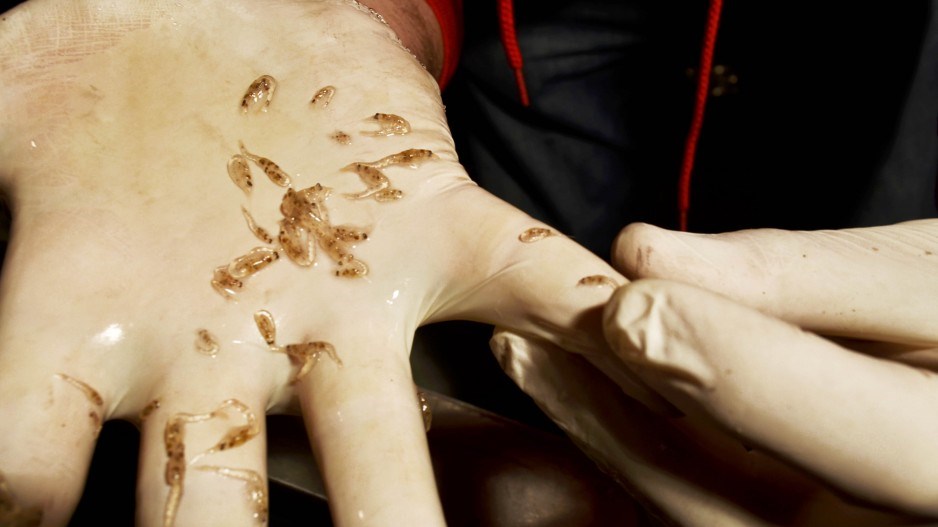The droughts ravaging parts of California this past year could be one sign the world is on the cusp of a serious resource shortage, according to Adrian Southern.
“We’re beyond the phase of peak oil and now in the time of peak food,” said the 32-year-old farmer and owner of Raincoast Aquaponics.
Using technology to combine sea and land to farm meat and produce will be the key to creating sustainable food supplies in the future, Southern said.
Inside a greenhouse in Duncan, B.C., Southern and business partner Whelm King have built an interconnected “aquaponics” (a portmanteau word combining aquaculture and hydroponics) system that holds 50,000 litres of water to grow food and raise fish in separate troughs. Most of the water is recirculated and fewer than 200 litres of water a day is used to produce 1,500 kilograms of trout and up to 60,000 heads of lettuce annually.
Meanwhile, over the past 15 years, Vernon, B.C.’s Piscine Energetics has been developing technology to rid Okanagan Lake of the invasive mysis shrimp — or what CEO Nuri Fisher calls the “pine beetle of the lake.”
The company created an apparatus that pulls the shrimp from the lake without harming fish. Instead of tossing the shrimp, the company sells them to zoos, aquariums and pet owners as fish food.
“A night of harvest can range anywhere from 500 to 1,500 pounds of mysis shrimp,” Fisher said, adding he expects to triple the size of his three-boat fleet within three years.
Efforts to build a business around one of the most basic of natural resources using innovative technology aren’t unique to small companies like Raincoast and Piscine.
According to a fourth-quarter report from Cleantech Group, US$358 million in water-technology venture capital funding was raised throughout North America in 2014. While that’s a 39% decline from the previous year’s haul of US$585 million, deals with corporate participation went up 18.4%.
Vancouver’s Axine Water Technologies CEO Jonathan Rhone said investors in this sector have become much savvier in recent years.
“They want to see technologies that are wildly disruptive in the market, and they want to see a clear path to market and a value proposition that absolutely crushes the incumbent technology,” he said.
Rhone’s company has been one of the startups that still had success raising venture capital in 2014, when it closed $5.6 million in Series A funding.
Axine has developed an on-site treatment for polluted water using electrolytic cells that is relatively cheap, produces no sludge and uses no chemicals.
“We’re in the industrial waste- water market as opposed to the municipal market,” Rhone said. “This is a market that is about $35 billion to $40 billion annual spend globally.”
Southern added that sustainability is one of the keys in this sector.
When he saw his first aquaponics system being used in the late 2000s at Vancouver Island University, he was convinced he could use water technologies to create a sustainable – and profitable – business.
“No matter how you do aquaponics, it has to be sustainable,” Southern said, noting Raincoast’s system wouldn’t function or be financially feasible if it relied on medicated feed for the fish or fertilizers for the lettuce.
“If I can produce fresh, leafy greens in the middle of the winter in Vancouver Island, the market is all of Vancouver Island.”




